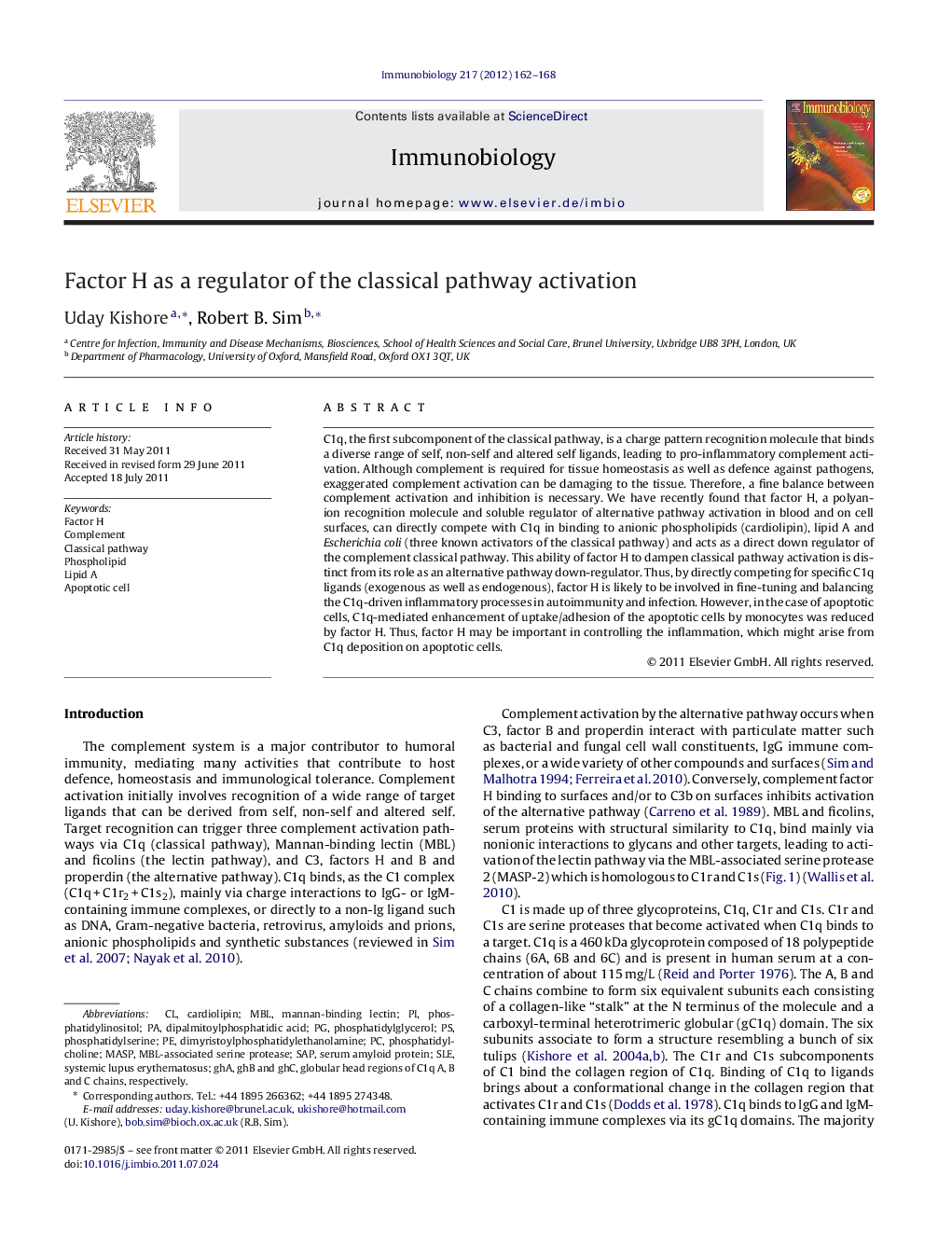| Article ID | Journal | Published Year | Pages | File Type |
|---|---|---|---|---|
| 10941090 | Immunobiology | 2012 | 7 Pages |
Abstract
C1q, the first subcomponent of the classical pathway, is a charge pattern recognition molecule that binds a diverse range of self, non-self and altered self ligands, leading to pro-inflammatory complement activation. Although complement is required for tissue homeostasis as well as defence against pathogens, exaggerated complement activation can be damaging to the tissue. Therefore, a fine balance between complement activation and inhibition is necessary. We have recently found that factor H, a polyanion recognition molecule and soluble regulator of alternative pathway activation in blood and on cell surfaces, can directly compete with C1q in binding to anionic phospholipids (cardiolipin), lipid A and Escherichia coli (three known activators of the classical pathway) and acts as a direct down regulator of the complement classical pathway. This ability of factor H to dampen classical pathway activation is distinct from its role as an alternative pathway down-regulator. Thus, by directly competing for specific C1q ligands (exogenous as well as endogenous), factor H is likely to be involved in fine-tuning and balancing the C1q-driven inflammatory processes in autoimmunity and infection. However, in the case of apoptotic cells, C1q-mediated enhancement of uptake/adhesion of the apoptotic cells by monocytes was reduced by factor H. Thus, factor H may be important in controlling the inflammation, which might arise from C1q deposition on apoptotic cells.
Keywords
dimyristoylphosphatidylethanolamineMBLMASPdipalmitoylphosphatidic acidapoptotic cellSAPFactor HphosphatidylinositolphosphatidylcholinephosphatidylglycerolPhosphatidylserinePhospholipidSystemic lupus erythematosusSLEMannan-binding lectinLipid AComplementclassical pathwayMBL-associated serine proteaseserum amyloid proteinCardiolipin
Related Topics
Life Sciences
Biochemistry, Genetics and Molecular Biology
Cell Biology
Authors
Uday Kishore, Robert B. Sim,
